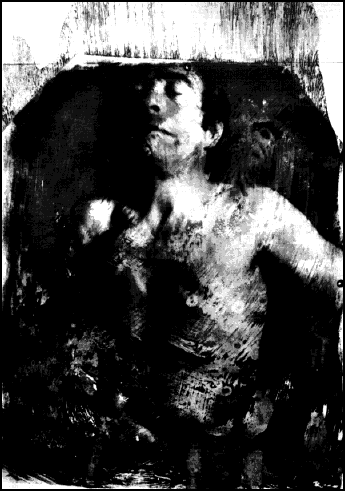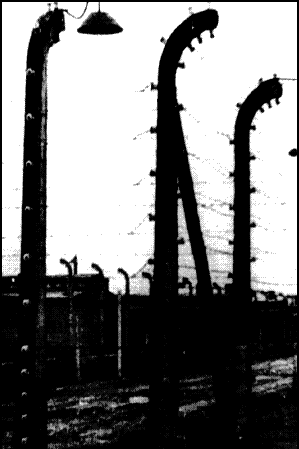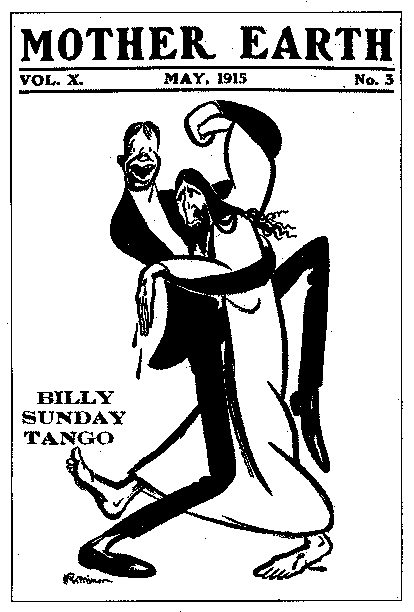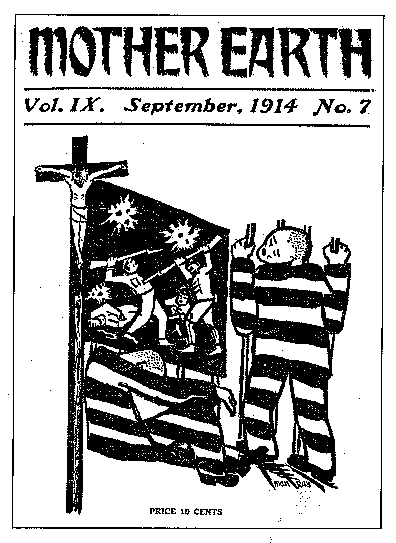Change
Dan Fante
(Sun Dog)

My memories of the older Fante's writings are particularly benign. It's a kindly school of fiction that I remember even now, years after reading it, with great fondness. The work of Junior is a different breed entirely, more like picking up an already-opened soft drink and after the first slug, realizing far too late that someone has dumped a half-smoked cigarette in it, or, better, a roach. There's boozing and stealing cars and boozing and picking up whores and boozing and attempted suicides and boozing and fighting with the family and snorting coke and blacking out on smarmy motel rooms and upchuck and dog-shit in the back seat and trashing cars and putting unmentionable things in women's purses.
The blurbs compare Fante Junior to Bukowski. This is automatic. If someone writes about drinking and puking it all back up we naturally think Bukowski. But hidden in Bukowski's novels was always a hint of very rough compassion... a high and rollicking sense of humor, even a tad of shame. Not much of that here. The only compassion to be found in Chump Change is the author's affection for a revolting, aged, and thoroughly ugly dying bull-dog --- one who belongs to his dying father.
The death of Fante Senior is the core of the story here (along with puking, etc). It takes almost the full 200 pages for the old man to finally give up the ghost, so I guess the pooping and snarling bulldog (carrying around a rotten gopher, in his mouth, in the back-seat of the stolen car) must have some symbolic value.
By contrast, there are very few moments of glee in Chump Change. Sneaking Rocco the dog into the hospital room for a last farewell to the old man is one. The build-up Junior has to go through to get a job as a salesman for a singles dating club is another. Best of all, there's the stealing of his wife's credit card and, with it, a visit to a local mini-mart liquor store to fill up three shopping baskets with Mad Dog 20-20 (there's that symbolic dog again), "Genoa salami and ten kinds of frozen dinners and crackers and mayonnaise and salad dressing and a dozen brands of plastic cold cuts." The counter next to the cash-register fills up with "packages of light bulbs, telephone cords, and plastic-wrapped flash lights.
Oreos and Malomars went in and chocolate chips by the dozen. Bags and bags. Peanut butter and oatmeal and even twenty packages of coconut macaroons that I knew I'd never eat.
"I had a mission," he tells us.
Junior is obviously one of those people who you and I wouldn't want to meet on a bet. Like a mad dog, he will turn on you snarling and grinding his teeth and stinking of booze. If for some stupid reason you loan him some money, he goes right out and spends it so he can come back drunk, beat on your door at three a.m., and demand another loan.
Having said all that about this disgusting tour de force, I want to tell you that I couldn't put it down, in all its vomiting moiling seething alky-shaking mess. I read it at a sitting. It's probably not unlike being at the scene of a massive freeway pile-up, or maybe witness to a drive-by shooting. After it's all over, you want to know everything --- how it happened, why it happened, who got hurt, and, in the heap of bodies over there, if there are any who survived.
In Chump Change, the survivors are few. Fante Senior doesn't make it. Neither does Rocco (nor his rotten gopher). Fante Junior does more or less --- but after all the boozing and shakes and stabbing himself in the belly and those disgusting Malomar bars and potato chips and cheese puffs he keeps throwing down (and promptly throwing back up) I am blessed if I can see how.
Star
Zdenka Fantolvá
Translated by
Deryck Viney
(Herodias)

At the same time, it makes us very uneasy, suspicious of any hint that our own country may be moving in just such a direction. Every time we hear another hate rant program on AM radio, we remember, uneasily, that it's exactly how Hitler got his power: broadcasting vituperation, directed at the enemy without...and the ones next door.
For that reason, we picked up Fantlová's book just to leaf through it (planning to stay with it until it got too bad) but we were soon hooked. It's hook is not unlike a murder mystery (the Holocaust is a murder mystery), a tale of a surprise nightmare. We are involved in a child's loving and lovely childhood in Czechoslovakia, a generous father, a kind mother, child flirtations, journeys on the train to Prague, the heady smell of the woods, young love.
Then, suddenly, German troops move in; suddenly she and her family find themselves wearing yellow stars; suddenly the laws are getting strange --- the very laws under which a whole nation operates; suddenly the Nazis are in her home, mercilessly beating her very dignified, very kindly father. And suddenly they are being sent "to the east."
As she goes from one camp to the next, she tells us that she learns one important lesson. She learns that things will always get worse. For five years, she passes through a succession of them: from Terezín --- a ghetto where plays and music were still permitted --- to, ultimately, Belsen.
We learn, as she does, the crucial importance of tiny things. In Auschwitz-Birkenau, she and her sisters share a single sewing needle, but by having the ability to sew up the holes in their clothing, it is possible for them to survive the bitter winters. In Belsen, she is able to hide a single table knife, which makes it possible for her to dig for roots to eat. And through it all, she guards as most precious possession, the copper ring given her by her lover just before they were parted. Tiny things that become precious, that make it possible to survive the worst.
There are a multitude of moments that give life to this book, and to the writer, so that it is not all unremitting horror. In Terezín the prisoners are allowed to perform concert music, to give plays, to sing. The one drama production that goes over like a lead balloon is Molière's Georges Dandin. We would guess that the playwright's traditional cynicism was just too much for that prison audience.
When she, her mother and sisters arrive at Auschwitz, she notices a slightly sweet smell of smoke hanging over everything. The odor makes her wonder if there is not a meat-packing plant near to the camp. The prisoners are given clothes taken from other prisoner's luggage, which has nothing to do with their size or weight. Fantlová is given "an olive green georgette evening gown with pearls all over and flashing sequins around a deep-cut neck."
"Who, I wondered, could have been the owner of the green gown I was now wearing? Why did she bring it here? To what sort of place did she imagine she was going?" It had, she tells us,
a nineteenth-century look and could have been worn in a stage play about society ladies who dressed for dinner. Now I would be wearing it in another sort of play, with a very different setting and plot.
It is these asides, that take a dramatic story and not only make it believable, but touching. It is a grim story told with grace; we are left caring for one who went into such an abyss and, with astonishing will, survived.
An Anthology of
Emma Goldman's
Mother Earth
Peter Glassgold,
Editor
(Counterpoint)

The word anarchism may not mean much to present-day students, but it was the equivalent to what, these days, we call "terrorism" --- eg, those who bomb apparently at will, whether they be Basque or Irish or Muslim or Idaho terrorists.
According to editor Glassgold, of the hundreds of anarchist magazines and newspapers, Mother Earth "ranks among the longer lived, best written, and best produced... This allowed it to develop a broad readership beyond anarchist circles and appeal to socialists, singer-taxers, militant Wobblies, social reformers, and even parlor liberals." The first printing sold 4,000 copies, and at one point, sales reached 10,000.
The editorial offices were, for a time, at Goldman's apartment and, according to Mabel Dodge, professional wealthy salon matron for Wobblies and other trouble- Anarchy! includes a helpful introduction by the editor, and almost seventy-five articles drawn from the pages of the magazine. The variety and fame of the contributors is a tribute to Goldman's taste and dedication. They include Eugene O'Neill, Will Durant, Tolstoi, Maxim Gorky, Peter Kropotkin, Padraic Colum, Margaret Sanger, Don Marquis, and Ben Hecht. Most interesting to this reader are not the essays of Goldman, but her fascinating life story. As a writer she was a bit of a spout, and tempered language was not her strong point. For example, this on capitalism: Send you children on to me, I will, twist their bones; I will sap their blood, I will rob them of their bloom. Or on militarism, which she saw as the other face of capitalism: Send your sons on to me, I will drill and discipline them until all humanity has been ground out of them; until they become automatons ready to shoot and kill at the behest of their masters. Her writings are, in truth, nothing to write home about --- but her actions were heroic and pure. She was arrested constantly (to her, to be sent to jail was a victory). In 1893, she was sentenced to prison for "inciting to riot." The sticking point was her quote from Cardinal Manning, Necessity knows no law, and the starving man has a natural right to a share of his neighbor's bread. Ask for work. If they do not give you work, ask for bread. If they do not give you work or bread, then take bread. Some of her better writings were on the subject of Birth Control (always spelled with capital letters). These writings also netted her time in the pokey. During one trial, according to Leonard Abbot, "her offense was that she exposed the evils of indiscriminate and incessant breeding and that she told the poor, in language they could understand, how they might limit their families." She said that if it constituted a crime to contend for happier childhood and healthier motherhood, she was glad and proud to be a criminal... "I have committed no offense [she said], I have simply given to the poorer women in my audiences information that any wealthy woman can obtain secretly from her physician, who does not fear prosecution. I have offered them advise as to how to escape the burden of large families without resorting to illegal operations." But what finally destroyed Mother Earth was the magazine's bitter opposition to World War I and conscription. Under wartime legislation, to oppose these was defined as "espionage." This gave officials an excuse to search the magazine offices and confiscate whatever documents they deemed damning. During the publication's last years, Emma Goldman and Alexander Berkman --- her editor --- were forced to serve time in Federal Prisons for their opposition to the draft. Shortly afterward, the two of them were deported to Bolshevik Russia. She was allowed briefly to return to the United States in 1924 (to lecture on modern drama, of all things) --- but she was forced to spend most of her time in Canada. She died on the eve of World War II, and was buried in Chicago, next to those who had been blamed for the "Haymarket Riot" of 1886. To this date, the editor points out, documents taken from Mother Earth's offices during the raids have never been recovered, meaning that key facts about the history of American anarchism have been lost, probably forever. Some of the most fascinating items in Anarchy! are eleven rare cover drawings --- idyllic naked Eden figures from the first issues, which then evolved into Robert Minor's bitter "Billy Sunday Tango" [Fig. 1] and artist Man Ray's depiction of prisoners and the bayoneting of soldiers at the beginning of World War I. [Fig. 2]  During the years of Mother Earth, she traveled constantly around the United States, speaking to, by her own estimation, 50,000 - 75,000 people a year. But the magazine and its writers and editors were constantly harried by local and federal officials. In those days, the Post Office regularly made trouble for dissident publications by holding up delivery until it was out of date. The Postmaster found that articles by Margaret Sanger on birth control and Goldman's writings on "white slavery" were obscene.
During the years of Mother Earth, she traveled constantly around the United States, speaking to, by her own estimation, 50,000 - 75,000 people a year. But the magazine and its writers and editors were constantly harried by local and federal officials. In those days, the Post Office regularly made trouble for dissident publications by holding up delivery until it was out of date. The Postmaster found that articles by Margaret Sanger on birth control and Goldman's writings on "white slavery" were obscene.